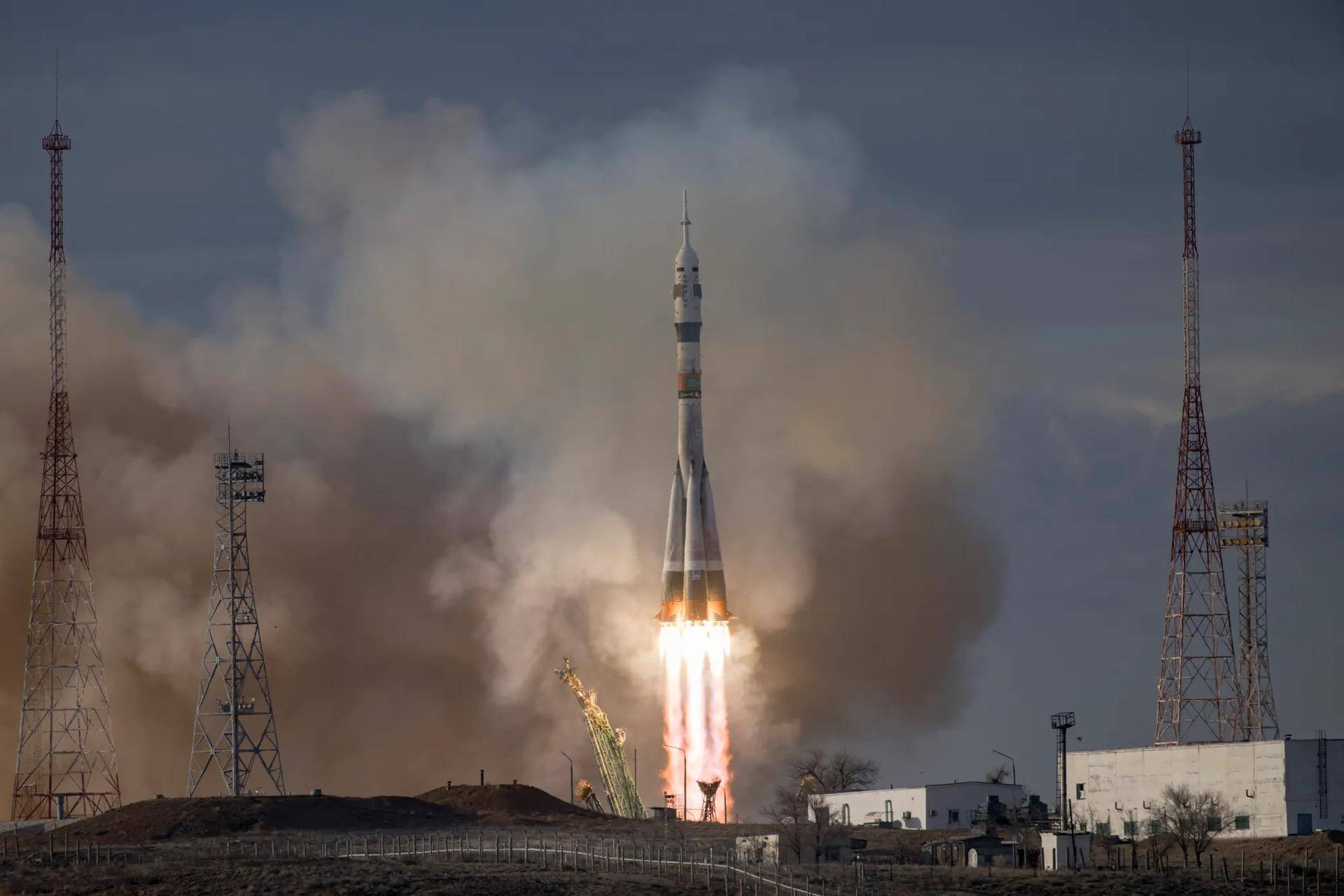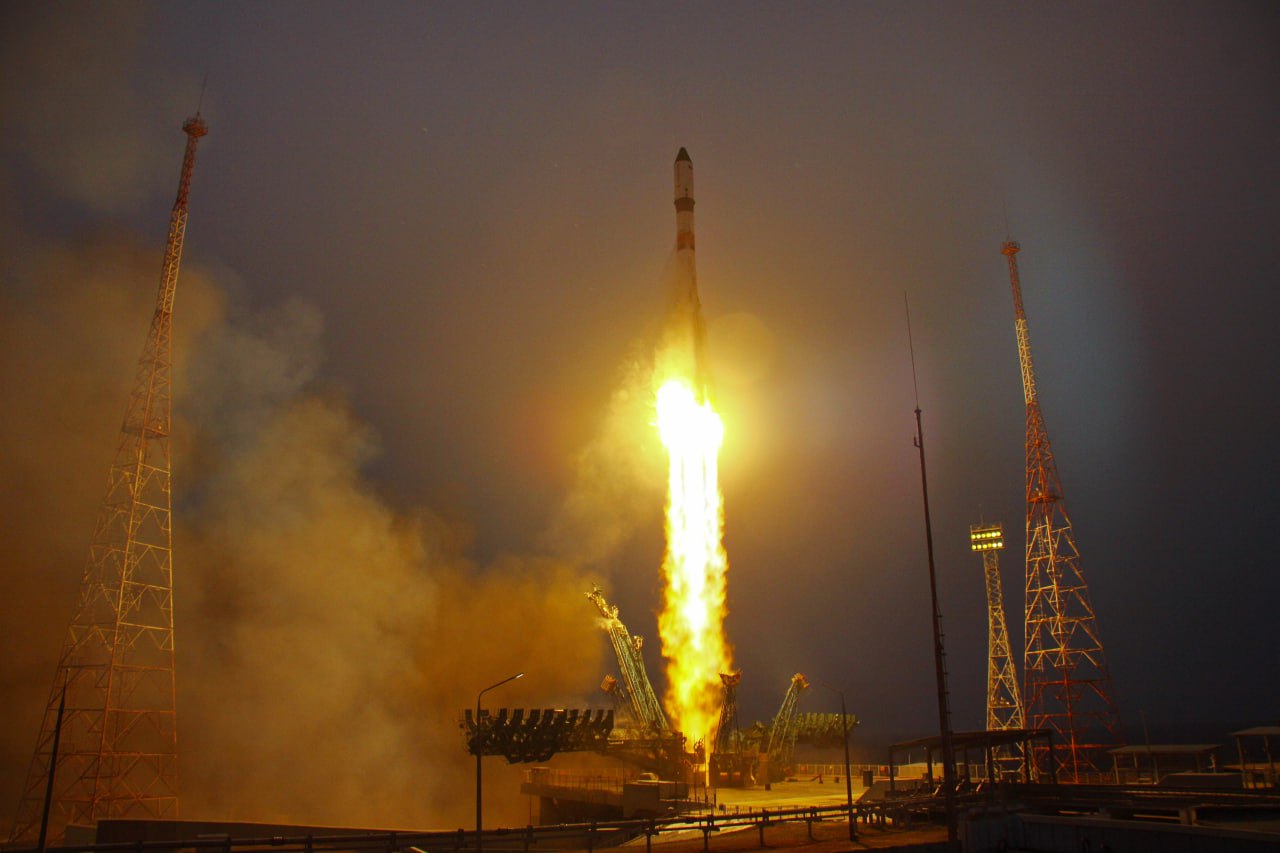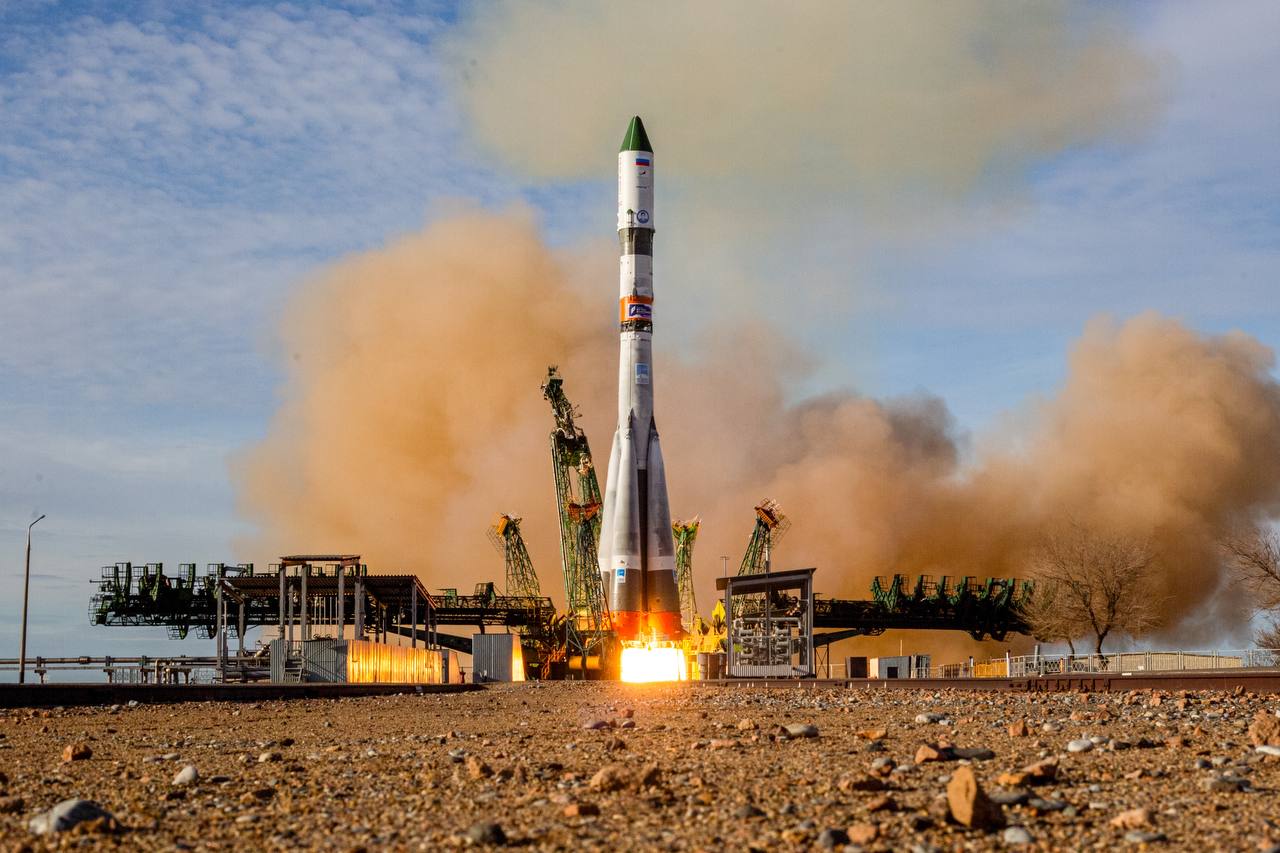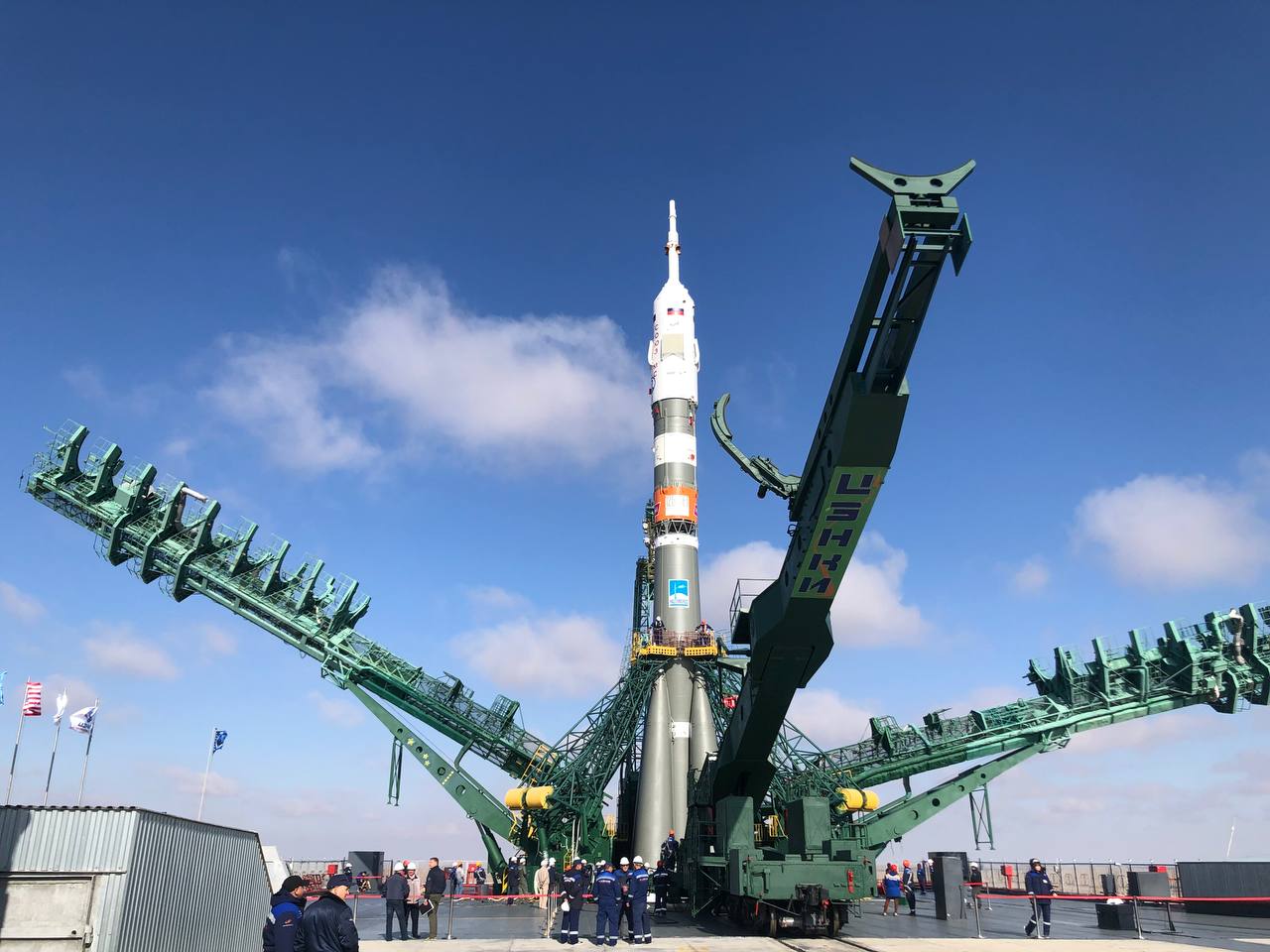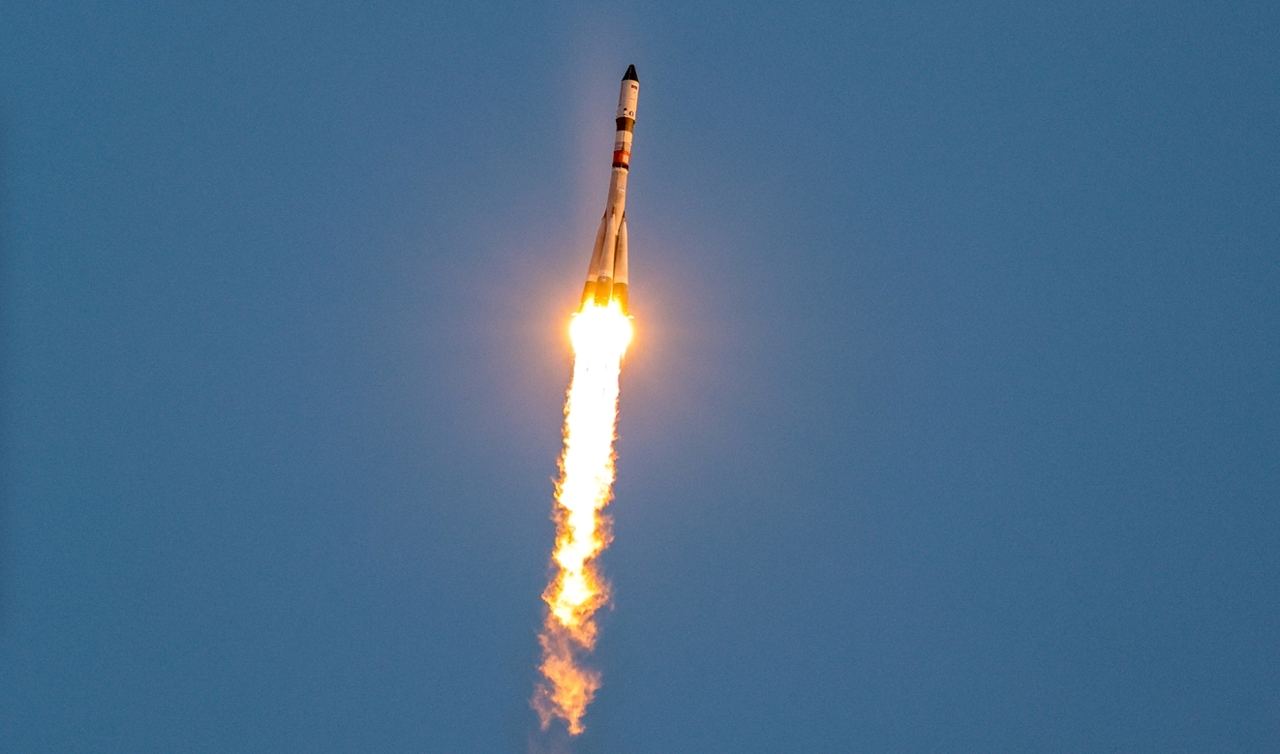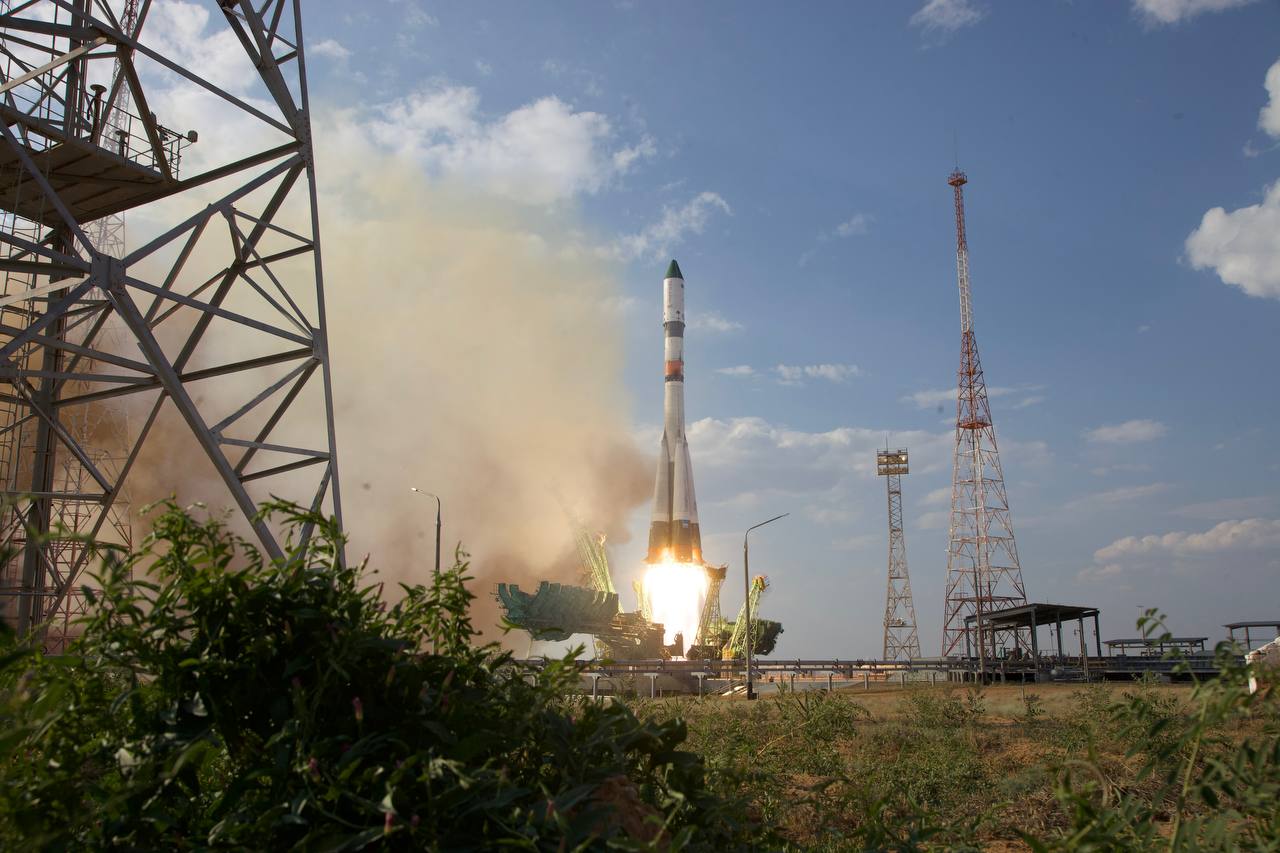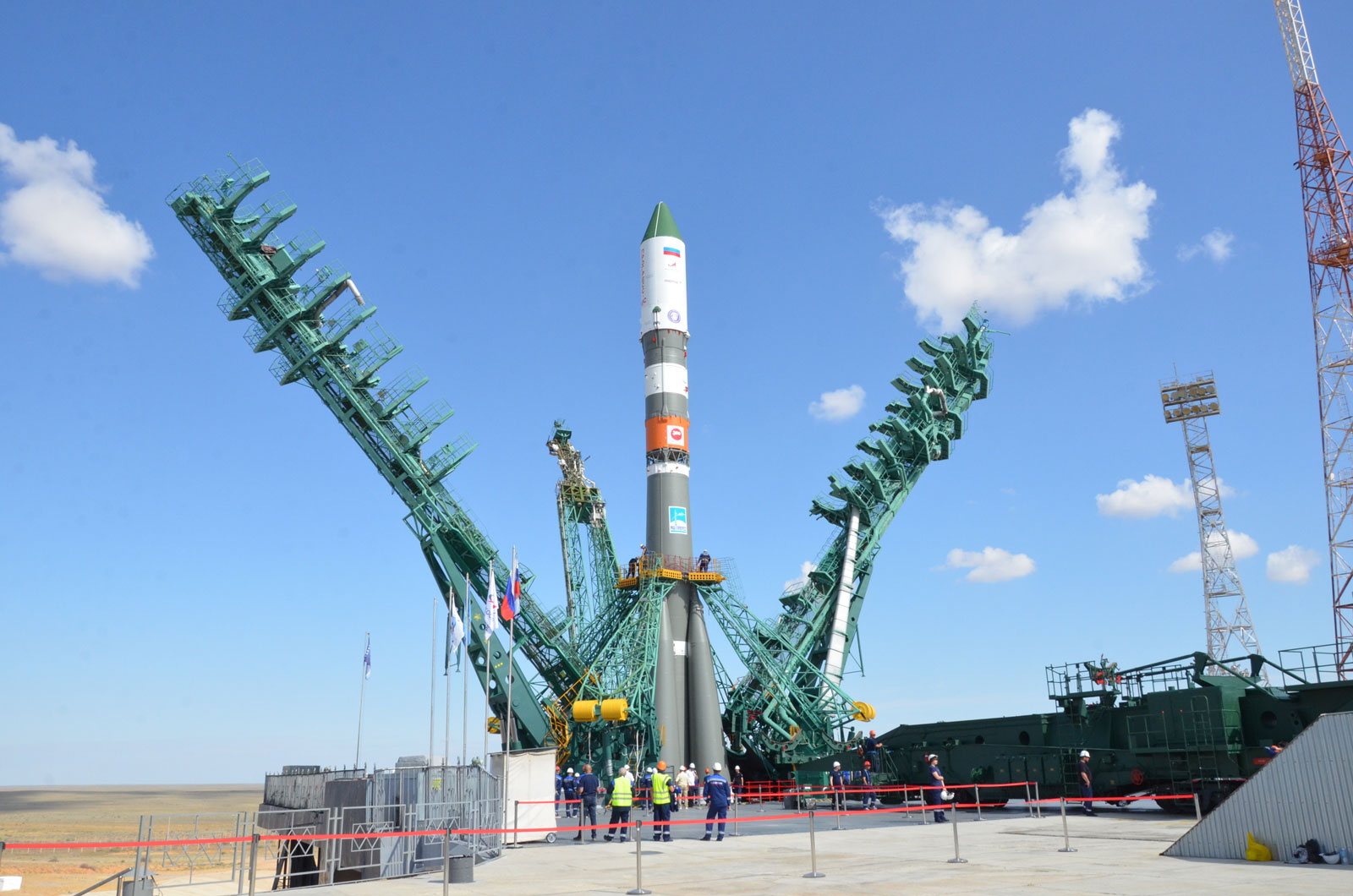
Soyuz 2.1a
ActiveProgress Rocket Space Center (PRSC)
Nov. 4, 2004
Description
The Soyuz 2.1A converted the flight control system from analog to digital, which allowed launch from fixed platforms. It also allowed big fairings and payloads. It is currently used for crewed Soyuz and Progress flights to the ISS.
Specifications
-
Minimum Stage
2 -
Max Stage
3 -
Length
46.3 m -
Diameter
2.95 m -
Fairing Diameter
― -
Launch Mass
312 T -
Thrust
4149 kN
Family
-
Name
Soyuz 2.1a -
Family
― -
Variant
― -
Alias
― -
Full Name
Soyuz 2.1a
Payload Capacity
-
Launch Cost
$80000000 -
Low Earth Orbit
7020 kg -
Geostationary Transfer
Orbit
2810 kg -
Direct Geostationary
― -
Sun-Synchronous Capacity
4230 kg
Progress Rocket Space Center
Commercial
Dmitry Baranov
PRSC 1996Progress Rocket Space Centre, formerly known as TsSKB-Progress, is a space science and aerospace research company which is known for manufacturing launch vehicles and satellites. Most notably, Progress Rocket Space Centre is the manufacturer of Soyuz launch vehicles.
Upcoming Spaceflights
Soyuz 2.1a | Progress MS-27 (88P)
Progress Rocket Space Center | RussiaBaikonur Cosmodrome, Republic of Kazakhstan
May 30, 2024, 9:42 a.m.
Soyuz 2.1a | Obzor-R No.1
Progress Rocket Space Center | RussiaVostochny Cosmodrome, Siberia, Russian Federation
TBD June, 2024
Status: To Be Determined
Mission:
The Russian Obzor-R satellite is a planned X-band radar earth observation satellite designed by TsSKB-Progress. In 2012, the development of the Arkon-2M radar satellite was stopped and instead the development of the Obzor-R was initiated. The satellite features the BRLK X-band Synthetic Aperture Radar as the imaging instrument with a ground resolution of 500 m.
Sun-Synchronous OrbitSoyuz 2.1a | Progress MS-28 (89P)
Progress Rocket Space Center | RussiaBaikonur Cosmodrome, Republic of Kazakhstan
TBD August, 2024
Soyuz 2.1a | Bion-M No. 2
Progress Rocket Space Center | RussiaBaikonur Cosmodrome, Republic of Kazakhstan
TBD September, 2024
Status: To Be Determined
Mission:
Bion-M is the next generation of Russian biological research satellites. While retaining the Vostok/Zenit-derived reentry module of the earlier Bion, the propulsion module has been replace by a Yantar type module, which provides maneuvering capabilities and longer mission support. The mission duration has been increased to up to 6 months by using solar cells for energy generation. The weight of scientific equipment has been increased by 100 kilograms.
Low Earth OrbitSoyuz 2.1a | Soyuz MS-26
Progress Rocket Space Center | RussiaBaikonur Cosmodrome, Republic of Kazakhstan
TBD September, 2024
Soyuz 2.1a | Progress MS-29 (90P)
Progress Rocket Space Center | RussiaBaikonur Cosmodrome, Republic of Kazakhstan
TBD November, 2024
Soyuz 2.1a | Soyuz MS-25
Progress Rocket Space Center | RussiaBaikonur Cosmodrome, Republic of Kazakhstan
March 23, 2024, 12:36 p.m.
Soyuz 2.1a | Progress MS-26 (87P)
Progress Rocket Space Center | RussiaBaikonur Cosmodrome, Republic of Kazakhstan
Feb. 15, 2024, 3:25 a.m.
Soyuz 2.1a | Progress MS-25 (86P)
Progress Rocket Space Center | RussiaBaikonur Cosmodrome, Republic of Kazakhstan
Dec. 1, 2023, 9:25 a.m.
Soyuz 2.1a | Soyuz MS-24
Progress Rocket Space Center | RussiaBaikonur Cosmodrome, Republic of Kazakhstan
Sept. 15, 2023, 3:44 p.m.
Soyuz 2.1a | Progress MS-24 (85P)
Progress Rocket Space Center | RussiaBaikonur Cosmodrome, Republic of Kazakhstan
Aug. 23, 2023, 1:08 a.m.
Soyuz 2.1a | Progress MS-23 (84P)
Progress Rocket Space Center | RussiaBaikonur Cosmodrome, Republic of Kazakhstan
May 24, 2023, 12:56 p.m.
Soyuz 2.1a | Kosmos 2567 (Bars-M No. 4)
Progress Rocket Space Center | RussiaPlesetsk Cosmodrome, Russian Federation
March 23, 2023, 6:40 a.m.
Status: Launch Successful
Mission:
Note: Payload identity uncertain. Bars-M is the second incarnation of the Bars project, which was started in the mid 1990ies to develop a successor for the Komtea class of area surveillance satellites. The original Bars project was halted in the early 2000s. In 2007, TsSKB-Progress was contracted for Bars-M, for which reportedly the Yantar-based service module was replaced by a new developed advanced service module. The Bars-M satellites feature an electro-optical camera system called Karat, which is developed and built by the Leningrad Optical Mechanical Association (LOMO), and a dual laser altimeter instrument to deliver topographic imagery, stereo images, altimeter data and high-resolution images with a ground resolution around 1 meter.
Sun-Synchronous OrbitSoyuz 2.1a | Soyuz MS-23
Progress Rocket Space Center | RussiaBaikonur Cosmodrome, Republic of Kazakhstan
Feb. 24, 2023, 12:24 a.m.
Soyuz 2.1a | Progress MS-22 (83P)
Progress Rocket Space Center | RussiaBaikonur Cosmodrome, Republic of Kazakhstan
Feb. 9, 2023, 6:15 a.m.
Soyuz 2.1a | Progress MS-21 (82P)
Progress Rocket Space Center | RussiaBaikonur Cosmodrome, Republic of Kazakhstan
Oct. 26, 2022, 12:20 a.m.
Soyuz 2.1a | Soyuz MS-22
Progress Rocket Space Center | RussiaBaikonur Cosmodrome, Republic of Kazakhstan
Sept. 21, 2022, 1:54 p.m.
Status: Launch Successful
Mission:
Soyuz MS-22 carried Roscosmos cosmonauts Sergei Prokopeyev, Dmitry Petelin and NASA astronaut Frank Rubio to the International Space Station aboard the Soyuz spacecraft from the Baikonur Cosmodrome in Kazakhstan. The spacecraft suffered a thermal control system depressurization/leak on the ISS on December 15, 2022, possibly due to micrometeor impact. It will land back on Earth without crew and will be replaced by Soyuz MS-23.
Low Earth OrbitSoyuz 2.1a | Progress MS-20 (81P)
Progress Rocket Space Center | RussiaBaikonur Cosmodrome, Republic of Kazakhstan
June 3, 2022, 9:32 a.m.
Soyuz 2.1a | Kosmos 2556 (Bars-M No. 3)
Progress Rocket Space Center | RussiaPlesetsk Cosmodrome, Russian Federation
May 19, 2022, 8:03 a.m.
Status: Launch Successful
Mission:
Bars-M is the second incarnation of the Bars project, which was started in the mid 1990ies to develop a successor for the Komtea class of area surveillance satellites. The original Bars project was halted in the early 2000s. In 2007, TsSKB-Progress was contracted for Bars-M, for which reportedly the Yantar-based service module was replaced by a new developed advanced service module. The Bars-M satellites feature an electro-optical camera system called Karat, which is developed and built by the Leningrad Optical Mechanical Association (LOMO), and a dual laser altimeter instrument to deliver topographic imagery, stereo images, altimeter data and high-resolution images with a ground resolution around 1 meter.
Sun-Synchronous OrbitSoyuz 2.1a | Soyuz MS-21
Progress Rocket Space Center | RussiaBaikonur Cosmodrome, Republic of Kazakhstan
March 18, 2022, 3:55 p.m.
Soyuz 2.1a | Progress MS-19 (80P)
Progress Rocket Space Center | RussiaBaikonur Cosmodrome, Republic of Kazakhstan
Feb. 15, 2022, 4:25 a.m.
Soyuz 2.1a | Soyuz MS-20
Progress Rocket Space Center | RussiaBaikonur Cosmodrome, Republic of Kazakhstan
Dec. 8, 2021, 7:38 a.m.
Soyuz 2.1a | Progress MS-18 (79P)
Progress Rocket Space Center | RussiaBaikonur Cosmodrome, Republic of Kazakhstan
Oct. 28, 2021, midnight
Soyuz 2.1a | Soyuz MS-19
Progress Rocket Space Center | RussiaBaikonur Cosmodrome, Republic of Kazakhstan
Oct. 5, 2021, 8:55 a.m.
Status: Launch Successful
Mission:
Soyuz mission launching from the Baikonur Cosmodrome in Kazakhstan and carrying Roscosmos cosmonaut Anton Shkaplerov as well as the Challenge movie crew (Russian film producer Klim Shipenko and actress Yulia Peresild) to the International Space Station.
Low Earth OrbitSoyuz 2.1a | Progress MS-17 (78P)
Progress Rocket Space Center | RussiaBaikonur Cosmodrome, Republic of Kazakhstan
June 29, 2021, 11:27 p.m.
Soyuz 2.1a | Soyuz MS-18
Progress Rocket Space Center | RussiaBaikonur Cosmodrome, Republic of Kazakhstan
April 9, 2021, 7:42 a.m.
Status: Launch Successful
Mission:
Soyuz MS-18 begins expedition 65 by carrying Roscosmos cosmonauts Oleg Novitsky, Pyotr Dubrov and NASA astronaut Mark Vande Hei to the International Space Station aboard the Soyuz spacecraft from the Baikonur Cosmodrome in Kazakhstan. After launching from the Baikonur Cosmodrome in Kazakhstan, they will rendezvous to the station where they will remain for their 6 month stay.
Low Earth OrbitSoyuz 2.1a | Progress MS-16 (77P)
Progress Rocket Space Center | RussiaBaikonur Cosmodrome, Republic of Kazakhstan
Feb. 15, 2021, 4:45 a.m.
Soyuz 2.1a | Soyuz MS-17
Progress Rocket Space Center | RussiaBaikonur Cosmodrome, Republic of Kazakhstan
Oct. 14, 2020, 5:45 a.m.
Status: Launch Successful
Mission:
Soyuz MS-17 begins expedition 63 by carrying Roscosmos cosmonauts Sergey Ryzhikov, Sergey Kud-Sverchkov and NASA astronaut Kathleen Rubins to the International Space Station aboard the Soyuz spacecraft from the Baikonur Cosmodrome in Kazakhstan. After launching from the Baikonur Cosmodrome in Kazakhstan, they will rendezvous to the station where they will remain for their 6 month stay.
Low Earth OrbitSoyuz 2.1a | Progress MS-15 (76P)
Progress Rocket Space Center | RussiaBaikonur Cosmodrome, Republic of Kazakhstan
July 23, 2020, 2:26 p.m.
Soyuz 2.1a | Progress MS-14 (75P)
Progress Rocket Space Center | RussiaBaikonur Cosmodrome, Republic of Kazakhstan
April 25, 2020, 1:51 a.m.
Soyuz 2.1a | Soyuz MS-16
Progress Rocket Space Center | RussiaBaikonur Cosmodrome, Republic of Kazakhstan
April 9, 2020, 8:05 a.m.
Status: Launch Successful
Mission:
Soyuz MS-16 begins expedition 62 by carrying Roscosmos cosmonauts Anatoli Ivanishin, Ivan Vagner and NASA astronaut Chris Cassidy to the International Space Station aboard the Soyuz spacecraft from the Baikonur Cosmodrome in Kazakhstan. After launching from the Baikonur Cosmodrome in Kazakhstan, they will rendezvous to the station where they will remain for their 6 month stay.
Low Earth OrbitSoyuz 2.1a | Progress MS-13 (74P)
Progress Rocket Space Center | RussiaBaikonur Cosmodrome, Republic of Kazakhstan
Dec. 6, 2019, 9:34 a.m.
Status: Launch Successful
Mission:
The Progress resupply vehicle is an automated, unpiloted version of the Soyuz spacecraft that is used to bring supplies and fuel to the International Space Station. Progress MS-13 will deliver close to 2,480 kilograms of supplies to the ISS, including around 420 kilograms of water in the containers of the Rodnik system, around 50 kilograms of pressurized oxygen in tanks, around 650 kilograms of propellant for refueling and around 1,350 kilograms of dry cargo, such as food rations, hardware for life-support and flight control systems, hygiene and medical supplies. In addition, the crew was also scheduled to receive a new tread for the treadmill.
Low Earth OrbitSoyuz 2.1a | Soyuz MS-14 Uncrewed
Progress Rocket Space Center | RussiaBaikonur Cosmodrome, Republic of Kazakhstan
Aug. 22, 2019, 3:38 a.m.
Status: Launch Successful
Mission:
Uncrewed Soyuz MS spacecraft to bring cargo to the space station. This demo flight tests a modified motion and navigation control system, as well as mating to Soyuz-2.1a rocket. The results will be used in development of an uncrewed cargo vehicle, based on Soyuz spacecraft.
Low Earth OrbitSoyuz 2.1a | Progress MS-12 (73P)
Progress Rocket Space Center | RussiaBaikonur Cosmodrome, Republic of Kazakhstan
July 31, 2019, 12:10 p.m.
Soyuz 2.1a | Progress MS-11 (72P)
Progress Rocket Space Center | RussiaBaikonur Cosmodrome, Republic of Kazakhstan
April 4, 2019, 11:01 a.m.
Soyuz 2.1A | Progress MS-09 (70P)
Progress Rocket Space Center | RussiaBaikonur Cosmodrome, Republic of Kazakhstan
July 9, 2018, 9:51 p.m.
Soyuz 2.1a | Progress MS-08 (69P)
Progress Rocket Space Center | RussiaBaikonur Cosmodrome, Republic of Kazakhstan
Feb. 13, 2018, 8:13 a.m.
Soyuz 2.1a | Progress MS-07 (68P)
Progress Rocket Space Center | RussiaBaikonur Cosmodrome, Republic of Kazakhstan
Oct. 14, 2017, 8:46 a.m.
Soyuz 2.1a | Progress MS-06 (67P)
Progress Rocket Space Center | RussiaBaikonur Cosmodrome, Republic of Kazakhstan
June 14, 2017, 9:20 a.m.
Soyuz 2.1a | Progress MS-02 (63P)
Progress Rocket Space Center | RussiaBaikonur Cosmodrome, Republic of Kazakhstan
March 31, 2016, 4:23 p.m.
Soyuz 2.1a | Bars-M No. 2 (Kosmos 2515)
Progress Rocket Space Center | RussiaPlesetsk Cosmodrome, Russian Federation
March 24, 2016, 9:42 a.m.
Soyuz 2.1a | Progress MS (62P)
Progress Rocket Space Center | RussiaBaikonur Cosmodrome, Republic of Kazakhstan
Dec. 21, 2015, 8:44 a.m.
Soyuz 2.1a | Kobalt-M (Kosmos 2505)
Progress Rocket Space Center | RussiaPlesetsk Cosmodrome, Russian Federation
June 5, 2015, 3:23 p.m.
Soyuz 2.1a | Progress M-27M
Progress Rocket Space Center | RussiaBaikonur Cosmodrome, Republic of Kazakhstan
April 28, 2015, 7:09 a.m.
Soyuz 2.1a | Bars-M (Kosmos 2503)
Progress Rocket Space Center | RussiaPlesetsk Cosmodrome, Russian Federation
Feb. 27, 2015, 11:01 a.m.
Soyuz 2.1a | Progress M-25M (57P)
Progress Rocket Space Center | RussiaBaikonur Cosmodrome, Republic of Kazakhstan
Oct. 29, 2014, 7:09 a.m.
Soyuz 2.1a | Foton-M No. 4
Progress Rocket Space Center | RussiaBaikonur Cosmodrome, Republic of Kazakhstan
July 18, 2014, 8:50 p.m.
Soyuz 2.1a | Kobalt-M (Kosmos 2495)
Progress Rocket Space Center | RussiaPlesetsk Cosmodrome, Russian Federation
May 6, 2014, 1:49 p.m.
Soyuz 2.1a | Bion-M No. 1
Progress Rocket Space Center | RussiaBaikonur Cosmodrome, Republic of Kazakhstan
April 19, 2013, 10 a.m.
Soyuz 2.1a | GVM Oblik
Progress Rocket Space Center | RussiaPlesetsk Cosmodrome, Russian Federation
Nov. 8, 2004, 5:29 p.m.
Status: Launch Successful
Mission:
Oblik-Dummy was Zenit-8 (Oblik) spy sat, which has been in storage long beyond its service live and was converted to an instrumented dummy payload for the maiden launch of the new Soyuz-2-1a launch vehicle. The photographic equipment was removed and the vehicle was fitted with vibration and thermal sensors designed to measure the launch environment of the new launch vehicle.
Low Earth OrbitLong March 4C
Shiyan 23
Launch Area 4 (SLS-2 / 603) - Jiuquan Satellite Launch Center, People's Republic of ChinaSatellite officially named for "space environment detection" purposes, exact details unknown.
Falcon 9
Starlink Group 8-2
Space Launch Complex 4E - Vandenberg SFB, CA, USAA batch of 20 satellites for the Starlink mega-constellation - SpaceX's project for space-based Internet communication system.
Long March 3
ZHTW 1-01
Launch Complex 2 (LC-2) - Xichang Satellite Launch Center, People's Republic of ChinaZhihui Tianwang 1-01 are 2 experimental Medium Earth Orbit communication satellites in a collaboration between Tsinghua University, SAST and the Shan…
Falcon 9
Starlink Group 6-56
Launch Complex 39A - Kennedy Space Center, FL, USAA batch of 23 satellites for the Starlink mega-constellation - SpaceX's project for space-based Internet communication system.
Long March 6C
Maiden Flight
Launch Complex 9A - Taiyuan Satellite Launch Center, People's Republic of ChinaCarried 4 Earth observation satellites to orbit: * Haiwangxing-01, 239 kg X-band SAR satellite built by SAST for Zhihui Space Tech * Zhixing-1C, X-…
